Why fit in when you were born to stand out.Dr. Seuss
Check Out These Highlights:
It’s so true. We were all born to stand out and share our gifts with the world. Yet, I know I have played safe and small over the years as I grew my confidence and my expertise – for me – in sales!
Promoting my business and myself took some practice and help from experts in the PR and advertising world. I believe we can’t do everything that is needed in running and growing a business, especially when it comes to PR and advertising.
The Competitive Advantage Of Being A Published Author With Barry H. Cohen (EP.100)
I’m happy that you’re here. I hope that each week, when you tune in, that you learn my passion, but more importantly, you feel my mission to change that word that we all think when we hear the word sales, “I’m going to get ripped off. I’m going to get duped.” I want to shift it so that when we hear the word sales, we know it’s coming from a place of integrity, love, care, and respect, and a place of service.
To help you with your mindset shift, I have a free gift for you, my Free Communication Style Assessment. You will get two cool reports. One, spotlighting just your natural superpowers and how people perceive you when you communicate. On the flip side, we have blind spots, which is our lowest style or the way we least show up in the world. Understanding that could be more impactful than just spotlighting what our natural superpowers are. Also, if you are enjoying the show, you know I love feedback, so please rate, review, and subscribe, so you don’t miss an episode. I do read the reviews. They do touch me when you guys share so many meaningful stories with me. It’s always appreciated.
Now, my motivational quote is by the amazing Dr. Seuss. Dr. Seuss says, “Why fit in when you were born to stand out?” I just love that quote. I thought it was cool and sets the stage for now. It’s true. We’re all born to stand out and share our gifts with the world. Yet, sometimes I’ve played it safe and small over the years as I grew my confidence and my expertise. For me, it’s sales. Now, promoting my business and myself took some practice and help from experts in the PR and advertising worlds. I believe we just can’t do everything on our own, running a business, running our careers, whatever it might be. We do need that outside help.
Who’s my guest? The amazing Barry Cohen. Barry is the author and co-author of two business books, 10 Ways to Screw Up an Ad Campaign and Start-Up Smarts, as well as a novel entitled, Comin’ Home. He has been a columnist for the Media Trade Press, writing for both Radio & Records and Radio Ink Magazine. When he is not writing his own books, he’s helping other authors get their voices out into the world as a ghostwriter, editor, and publicist.
His career has spanned over 40 years. He’s like me. We started when we were 10. He’s been in advertising and public relations, including broadcasting and serving as an ad agency principal. Barry has been a frequent guest speaker at trade shows and conferences, on subjects reigning from effective advertising to publishing to entrepreneurship, and has been featured in numerous media outlets. He is a native of New Jersey where he resides with his wife and their rescue dog. Please help me welcome my friend and guest, Barry, to the show. Barry, thanks for being on.
About Barry H. Cohen:
Barry is the author/co-author of two business books, 10 Ways to Screw Up an Ad Campaign and Startup Smarts, as well as a previous novel entitled Comin’ Home. He has been a columnist for the media trade press, writing for both Radio & Records and Radio Ink magazines. When he is not writing his own books, he is helping other authors get their voices out into the world as a ghostwriter, editor, and publicist.
His career has spanned over 40 years in advertising and public relations, including broadcasting and serving as an ad agency principal. Barry has been a frequent guest speaker at trade shows and conferences on subjects ranging from effective advertising to publishing to entrepreneurship and has been featured in numerous media outlets. He is a native of New Jersey where he resides with his wife and their rescue dog.
How to Get in Touch With Barry H. Cohen:
Thank you, Connie. You can ask me anything personal or professional. I will not divulge any national secrets, however.
We’ve been around for many years. We’ve been doing this. We have a lot of information in our brains that we certainly are here to support and help people. How did you get started in your career?
I took a flying leap into a small radio station that was in a turnaround. It was something that I said, “I don’t want to be a salesman.” I kept on saying, “I don’t want a sales job,” but it gave me the opportunity to learn the media, which I wanted to get into anyway. It gave me the opportunity to do other related things like copywriting, audio production, and voiceover work. It was like, “This isn’t so bad.” I just took flight once I got into it and learned it.
It was natural for you, right?
It was, once I got there.
It’s funny because you do have a recording voice. I could see where people would say, “Can you do a commercial for me?” or hire you to do that audio piece of it. You do have a great sound. Your voice has just a great sound and richness to it.
Thank you. I just recorded my own audiobook.
I could totally listen to you through a whole audiobook. That’s so cool.
In English.
Media Advertising To Publishing PR
Here’s the thing with the audiobooks. Now that we’re back to commuting and stuff, the audiobook is such a great way to get through content and have a voice read it to you because a lot of us are very auditory-driven. I do like the whole audiobook that’s now just available for authors, like you and me. We can create these audio audiobooks, which is cool. Next question. What made you pivot from that advertising media place to that PR in publishing? It’s a little bit of a shift, even though it’s still the media market.
It is getting old. In all seriousness, avoiding obsolescence. My business partner and I were not 25-year-old internet whiz kids. Times changed. Our primary focus when we started the ad agency was around radio and television. People fell in love with the internet and it just was not our expertise. Rather than going into a deep learning curve, we did partner with other people. We collaborated with other folks that had that expertise.
As it happened, once I succeeded in writing and publishing my own books, people just started coming to me right and left, saying, “Can you help me with my book project?” Lo and behold, what I didn’t know was that my friend of 40 years and business partner of 20 years died very subtly before the pandemic about a few years ago. As a result, I shut down the studios because that was his end of the operation, the production. I said, “All these people want my help with books and publishing. That’s where I’m going to be.”
Eighty-five percent of my time now is spent working with entrepreneurs and professionals that want to become thought leaders. They want to raise their profile and credibility. They want to become the perceived expert and we do that through publishing. Again, keeping in mind the very definition of publishing has changed. It’s not just books, it’s books, eBooks, audiobooks, podcasts, articles, and guest blogs.
The list goes on. It’s the ripple effect. You have the book or whatever, but then there are all these other ripples that you get from that one unit. First, I do want to say, “I’m so sorry for your loss of your partner.” Quick like that, it’s devastating, especially when you’re in business with someone. My sincere condolences for that.
Thank you.
The other thing is, it’s funny how there are transferrable skills in what you were doing and what you aren’t doing now. I often think people go, “COVID, I don’t know what to do.” Pause. Think about what your zone of genius is. What are people asking you for? People started coming saying, “Man, you wrote a book. Can you help me? I like what you did. What’s your process? Can you help me with that?”
We have to listen to what people’s needs are and constantly reinvent ourselves. You’re never losing who you were in the first place. We’re just adding skills to that pot of whatever the skill base is that we’ve already had. There are a lot of transferable skills that we do through our different careers that you go back and forth and get better and better at. Right?
Repurposing Content
People are consuming their content in so many different ways that you have to be something of a chameleon. Again, with all the various methods that I mentioned before, what you need is to be able to address people where they are, meaning on all the various different platforms. What you do is you repurpose your content.
People are consuming content in so many different ways these days. You need to address them where they are by repurposing content on various platforms. Share on XA real simple example, suppose I do a podcast. Now, I can take that podcast. I can run it through speech-to-tech software and now I’ve got a blog. I can take the best of those and I can turn it into a magazine article and I can pitch it to editors of digital editions of various publications. Now, I’ve got an article, a podcast, and a blog from the same content. Compile enough of them. Now you have a book.
We make it more complicated than we need to. Here’s why though. We don’t know what we don’t know. What you just described, people are like, “Oh.” That makes sense because you shined a light on maybe what they were doing and just expanded the perspective a little bit. We don’t know what we don’t know.
In reality, we’re producing whole books in a similar process. I’ve had clients that are ADHD, dyslexic, autistic, whatever, and they can’t sit down and write a book. They think they can’t. I’ve had clients that are just playing too busy. They’re running a big company and they don’t have time. What do we do? We get them on a Zoom call, like we’re on right now. I interview them. I Q& A them. I then take the audio track from that recording and I run it through that speech-to-text software, and then I edit from that. Now, I have a book. Amazing.
The technology’s there to support. It becomes much easier to do it. I’m curious. When you write your own books, do you use a similar process or is there a little bit of a difference?
It’s different. When I do my own books, the business books, I pretty much go with the pretty standard formula of doing an outline and then putting the flesh on the bones, so to speak. Now with fiction, it’s different. It’s more organic. It comes flowing out of you. I launched a novel and it’s the first in a trilogy of novels. That’s the one that I did the audiobook for. When you do that, it’s an entirely different process.
Writing Process
Can you share your process? Do you think it’s worth it for the people reading? Here’s the thing. I talk to people and they think, “I wish I could write a book. I’m going to write a book someday.” If people are listening and thinking, “I wish I could write a book,” can you give them just some context within that so they could start to think, “I can do that. That’s a possible process?”
Connie, the very first thing that you have to do is define and refine your audience. Everybody likes to think, “Everybody should read my book,” but everybody should not be reading your book. It’s all about finding who the best prospects are for your book. The same as the best prospects are for your customers that you’re going to sell to. Consider the book as a product. Once you define and refine who that audience is, that’s going to help you with everything from the voice that you write in, to the cover you design, to the way the book is positioned and promoted to the media. Start by defining and refining the audience.

From there, again, if it’s a business book, do an outline, just like when you did your term papers in school. Think of the outline as the table of contents of the book. If you think of the main points in your outline being the table of contents and the chapter hits, then you’ve got it. After that, it’s a pretty simple matter of putting the flesh on the bones. Granted, every book is different. Some of the things that we do are to add structure and add depth to the book. Oftentimes, we’ll have other experts. As you mentioned before, the importance of having other experts in your space to weigh in.
I’ll give you an example. We did one book on how Millennials start and grow businesses differently than our generation did. One of the things that Millennials face is the fact that they think they can go forever because they’re young and energetic. What that results in is very often entrepreneurial burnout. We had a psychologist write a sidebar to insert into the book to talk about how to avoid entrepreneurial burnout. Again, sometimes it’s a matter of finding important relevant quotes to start the chapter with. Most important of all, stories. Stories sell. Stories illustrate your points better than anything. Especially, if they’re real-world stories that you, the author, have experienced yourself.
People remember the stories. I published my book when COVID hit in 2020. We have a house down on the Jersey shore and our neighbors are across the water from us. We were friends with them. We’re friendly with all our neighbors. One day, they were coming over, having a drink on the deck. He says, “I’ve read your book.” I’m like, “I’m so honored. Thank you so much.” He was in medical sales. He has since retired. He said, “Con, I’ll tell you, it’s such a good reminder for those that have been seasoned.” He goes, “I learned so much about you that I never knew.”
He started to share the stories. My husband and his wife were there. The wife hadn’t read the book. She wasn’t in sales. She goes, “I have to read the book now. I want to hear these stories, too.” It was cute but he remembered the stories. He’s a peer of mine like you are, Barry. For many years, I’ve been in business. There were some of the things people had said to me in the past. He said, “I couldn’t believe it, but I know what you’re saying. I live through that crap, too.” It became this great conversation beyond sales. It becomes this human component of who we are that has to shine through in our book as well. Otherwise, it becomes super boring to just read like a technical book.
There’s something so important about what you just said. We’ll share this with your audience as well. One of my authors right now has a book in progress. She was struggling in the very first chapter and how to get through it. She’s in a very high place in the educational world. I said, “What you need to do is show your vulnerability because in your vulnerability is your strength.” After she absorbed and digested that, she came back with a revised chapter and talked about when she was a child and she stuttered. She had to wear glasses and the teasing by other kids. That added a whole dimension to the book. Again, the authenticity that she revealed is what’s going to make you buy into what she has to say. Be authentic and vulnerable.
The other thing he said was funny. He said, “Connie, it was just like we’re talking here directly. That’s what the book was.” That’s how I talk, I write. It’s grammatically correct on all of that, but the energy behind it is very much my voice. That’s another piece of having a successful book, right?
Very much so. Again, it has to sound like you. You may hire a professional editor, but that editor should still keep it in your voice.
Authors may hire a professional editor, but they should still keep their works in their voice. Share on XYou’re a ghostwriter, too. I can imagine the lengths that you go through to capture that other person’s voice because everybody’s not a great writer. Everybody doesn’t want to write the book physically, but they know they want to get a book out there and that’s where you come in. You have to do this deep dive because you have to get the vibe of them, their voice, and the vulnerability, as you said, to lift that vulnerability and story off the page. How do you do that?
The thing is, everybody has a book inside of them. My job is just to pull that out. You get them to talk. You get them to open up. You ask them the right questions and you find out who they are, what they’re about, and what’s important to them. You project and infuse that into the book. It’s so important that you can’t bore people, as you said before.
I’ll give you another example. One of my authors sent a chapter to me and it was the first chapter. I said, “I want you to do something.” When I met her at a networking organization one time, she introduced herself by kicking her shoes off, jumping up on the chair, and addressing the group. I said, “I want you to give me the written equivalent of you jumping up on that chair.” You got to hook them in the first chapter because if you don’t, they’re not reading the rest of it.
Did she do it?
She did.
Visually, I could picture her kicking off her shoes, jumping up on the chair, and saying, “Hear ye. I’ve arrived.”
You have to wake people up.
Is that how you help them find their voice? People reading are thinking, “I know I have a book inside of me, Barry. I agree with that. I don’t even know what my voice is.” Do you know what I mean?
Yes. Again, part of that is the questionnaire that I use where I get them to dig in themselves and open themselves up and you determine who’s their audience, what is their message, and what is the importance of their message. You can’t just give me the subject matter, “I write about technology.” No. What is your take on it? What is your perspective? What is your unique contribution to the world of technology?
Books Help Push The Envelope
You’re a needed resource. I do agree. Everybody has a book inside of them. With that said, especially business owners and even professionals, for them to build their credentials within their organization or a business owner to build that know, like, trust factor and that whole authority building piece. Why do you feel that a book helps push the envelope for professionals and/or entrepreneurs or business owners?
First of all, there’s still a great cache to publishing. For so long, it was elitist. Now, it’s much more democratized, if you will. It’s still considered highly credible. You reach into your bag after making a presentation, you take out a book. You open it up and you say, “How would you like that inscribed?” It’s got a wow factor to it. It sets you apart.

When I first decided to write my first book, I had spoken to a friend who had a larger ad agency and he had already written a book. I said, “What did it do for you?” He said two things. He said, “When we get called in for those dog and pony shows, those presentations, we would’ve been passed over as too small, but the book gave me the extra credibility, so they called us in. Secondly, after everybody’s seen all these dog and pony shows, their heads are spinning. They’re like, “Was he the guy with the blue folder, the red folder, or the white folder?” “No, he was the guy with the book.” It set him apart and distinguished him. It puts you head and shoulders above the rest. It’s not about selling 1 million books.
It’s about building authority.
A book does that probably better than anything.
Here’s the thing. Everybody’s like, “Big deal.” It is a big deal. Let me tell you, writing a book, it’s an effort. The other thing, too, is it shows that you have the mental ability on whatever your zone of genius is that you’re able to share. You have to be an expert to be able to write a book. Otherwise, it’s going to be garbage. That’s number one. You have to have the intellect and the zone of genius to share.
The second thing is, you do have to see it from the beginning, middle, to end. You got to get it out there. There’s the effort of publishing and editing it. I do think it should make a difference if you’ve published a book versus not publishing a book as it builds your authority and credibility. That’s a great story. You’re like me. I do proposals all the time. Why are they going to remember me? It’s because I have a big mouth and curly hair.
It works.
Having that book published, people now introduce me as world-renowned and I giggle. I’m a Jersey girl.
Here’s the thing. You don’t realize how far you can go with it. I’ll give you a couple of quick, real-life stories. Once I did my first book, I’m searching all the time on Google to see where it pops up. I see one night, it says, City University. I’m thinking, “City University Library of New York has my book?” I click the link, and it says, “City University of Hong Kong.” The Run Run Shaw Library has a copy of my book in English. That’s one. Two, I get an email out of the blue from Menaje, Colombia. I’m thinking, “What is this, the drug cartel? What is this all about?” This gentleman was for real.
Carlos Fernando via Gomez had a magazine. He had a newspaper column, a blog, a radio show, and a TV show in the country of Columbia. He wanted to bring a culture of marketing to Columbia. He would come to the States each year and interview several authors and experts, go on a swing, bring his own cameramen with him, and then he would cut these up and drip them out.
I wound up on his show and then found out it was syndicated by satellite all over Latin America. PS, you don’t know how far you can go once you do this. All of a sudden, you’re going to hear from, not only your neighbor at the shore house but somebody across the pond, so to speak, saying they read your book and they loved it.
Another quick one. I see this thing pop up on a business journal and I’m thinking, “It’s a business journal in New Jersey.” No, it’s the business journal of Hampton Roads, Virginia, someplace I’ve never been in my life. How am I getting a book review in there? This gentleman had an ad agency down in that area, Virginia Beach. He walks into the local Barnes & Noble, pulls my book off the shelf, is intrigued, reads it, writes a review, and sends it to his local business journal. He published it. I call him to thank him. I leave him a voicemail. He calls me back and he says, “You should come down here and speak to our local chapter of the American Marketing Association.” I said, “Great. Can you hook me up with that?” Next thing you know, I’m down there.
Crazy how it works. Now with the internet and technology that we didn’t have many years ago, you get it out there faster and louder and with a lot less angst because of things like that. You would never have found that person in the old days unless he hand-wrote a letter or whatever it was. It’s so much harder. Now, I feel like the universe, as big as it is, it’s small again. We have clients all over the world because of the internet and our ability to navigate, communicate, blogs, podcasts, and all of these things. I love it. Can you give us other examples? Number one, that is the coolest thing I’ve ever heard, Barry. That was a neat story. What are some of the things that have happened to the clients that you’ve worked with, getting them published, and then what was that after fact, that ripple effect?
One example is a woman from the island of Jamaica, not Queens, but in the Caribbean, who wrote a book on alternative non-bank financing for small businesses. She was referred to me by a mutual friend. She said, “Can you help me promote it?” I said, “Let me look at it.” I look at the book and I said, “I can help you promote it, but if you let me work with you to revise it, it can go a lot farther.” The book was thin. It needed bulking up. It needed updating. It had an ugly cover that looked very amateurish like you did it on your desktop and it had a long boring title, A Small Business Owner’s Guide: The Alternative to Finding What Everybody Needs to Know These Times in Tight Credit, textbook-boring.
We did a makeover on the book. We updated it. We got other experts to weigh in and corroborate. We added things like using your 401(k) or crowdfunding. We did a whole new beautiful cover. I wouldn’t tell her, until the last minute, what I was going to retitle the book. I said, “We’re on the phone. Open your email.” She opens the email. She gasps. She laughs. She says, “I’ll call you back in an hour.” She calls back in an hour and says, “Run with it.” We retitled the book, Spank the Bank: The Guide to Alternative Business Financing.
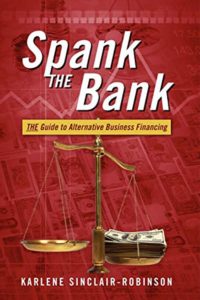
She did her own social media for three weeks and she’s very good at it. She teaches it. It did not move the meter on Amazon. When she said go, we did an old-fashioned traditional publicity campaign of reaching out directly to media outlets. We got her on MSNBC. It got picked up by Forbes.com and Huffington Post. As a result, she was getting inquiries at small business development centers to speak at community colleges, to do a class, and to new clients. It took off big time. That’s probably one of our best examples.
I love it. Here’s another thing, everybody that’s reading. Some people will say, “I wrote a book many years ago and nothing happened with it.” Maybe the content is at the core because your genius is your genius. It’s still there. Maybe it just needs to be tweaked, updated, and refurbished. As you said, bolt-up collaboration, having the right title and having the right cover. Especially, if we did it on our own many years ago, everything has changed. Now, we can amp it up pretty easily, especially if the bones are already there.
You Judge A Book By Its Cover
You said something else very important, as you always do, and that is the cover. The old adage that you can’t judge a book by its cover is false. Get that out of your heads. You do judge a book by its cover. How many seconds do you spend looking at a thumbnail the size of a postage stamp on Amazon before you decide whether you’re going to order the book or look at the spine of a book as you wander through the aisles of Barnes & Noble? Only seconds. If that doesn’t catch them dead in the water, they pass you by. That’s why, again, I bring that advertising and copywriting mindset into publishing, not only with my own titles but my client’s titles.
That’s why you’re so cool, Barry because it goes back to what I said before. You’ve had to reinvent yourself. I’ve had to reinvent myself, but everything we’ve learned over our 40-year stints in business, whether it was corporate or personal on our own, all of those spokes come into this core of how we can help and serve others. All of these things that you’re sharing are brilliant because you’re brilliant at what you do. This is amazing.
My last question, I do want to know. When you work with your client, what are your personal commitments to the people you work with? That story where you said, “I didn’t send it to her in advance. I got on the phone and said, ’Now, you can check your email.’” What is your personal commitment to the folks you work with?
We only want to work with people that are committed. It’s like a contract. You commit. I commit. I’ll give you an example. I worked with a 94-year-old gentleman who was the premier publicist in the music industry. He was the PR guy for everybody from Willie Nelson, to James Taylor, to Jerry Garcia, to Alice Cooper, writing his memoirs. We’re in the middle of editing his book.
The guy read the New York Times every day. All of a sudden, glaucoma robbed him of his vision. I went to his house. I sat across the kitchen table and I read my edits allowed to him for his approval. That was my commitment. Sure enough, he got his sample copy of the book and died. That was the commitment, “We’re going to get this book done before you pass away.” I can’t put it any better than that.
That’s amazing. This is the thing too, Barry. Maybe because we have been around, we’re seasoned. You know me. I say we’re hot and spicy. That’s why we’re seasoned. Here’s the thing. You’re the kind of person that I would want to work with. When I work with my clients, they do get all of me and we will get it to work. They have to be as committed as I am. We can bring the horse to the water. We can’t get them to drink. We do want to be with like-minded people like ourselves.
Ghostwriting
They need my help with sales. They need your help for the whole publishing and ghostwriting, whatever piece of that for publishing their own book or whatever it is that they can get from you. You have this depth of knowledge that most people don’t have because we didn’t come up through that whole media and all the background that you have. These are the kinds of things that matter. You think, “I don’t need a ghostwriter.” Maybe you do. Maybe you don’t. I don’t know. Have you had a conversation with someone that you trust like Barry so that you could say, “I’m not sure of what my next step is. Can you help me?”
I had a conversation with somebody that was very transparent. She said, “I’m looking at three people, you and a couple of others.” I said, “Here are the two things you have to evaluate when you decide who you’re going to work with. 1) You got to have that personal chemistry. You got to have a comfort level with the person. 2) What’s their track record? Have they done this? I’ve done two dozen books. I have ten more in the works right now for clients. Is this their first go-around? Do they have a track record? Are they seasoned? Can they lead you in the right direction?”

What’s cool with you, Barry though, is you do the ghostwriting and editing. You know what’s going to work and what’s going to look good like your description of Barnes & Noble, the spine, or the little clip that you see on Amazon. Not only do you have the authorship of the writing piece, but you have all the media components to get it out there and have it make an impact. Again, it’s time because we’re seasoned.
It’s the full circle. Somebody’s good at copywriting, but they might not have that media background or somebody might be good at the graphics but not understand anything beyond that. Because of your whole industry experience and growing up in that venue, you are full-service, which is cool. I don’t always see that when I interview people.
We’re collaborating with a small, independent publisher so that we have our own business book imprint. I don’t have to send people to a self-publishing house if I don’t want to. If I’m editing or promoting their book, I can serve as whatever they need. I meet them wherever they are on the journey, whether they need a ghostwriter, an editor, a publicist, a publisher, or all of the above, I can do any and all of the above.
That’s so amazing. Everybody, if you’re thinking of a book, is it worth having a conversation with you to determine whether they have a book in them or not?
Of course.
We are our worst enemy.
Again, this is no place for imposter syndrome.
Get out there and shine that light. Here’s the deal. I’m going to give you Barry’s website. It’s PublishingMentors.com. Email him if you have a question. It’s Publicist740@Gmail.com. Barry, I know you have a free gift. If they email you, this might be a nice place for them to start. What’s that free gift?
The free gift is my author-thought starter questionnaire, which will help you organize your thoughts, crystallize them, and set the direction. If you complete that questionnaire and you do it well, you practically have the outline for your book.
That’s beautiful. It’s a nice way to start. Email Barry to get that outline. We don’t have a link so this way, he can engage with you directly too and say if you have any questions. Thank you for that. I appreciate that. I love giving gifts. For me, our conversation is about information. They can go through the thought process worksheet and then that can make the spark of, “I need to do this. I need to talk to Barry.” It gets the information into action and that’s why I love the free gift. Thank you so much for that.
You’re very welcome. Thanks for the opportunity.
Barry, I love our conversation. Thanks so much for taking time out of your day. I appreciate it. It’s very informative. I hope you will join me weekly as we question, build, and discover together that no matter where you are in your career or business, I do hope my guests and I provide an idea, a spark, something for you to say, “I never thought about that. This is a good next step for me.” Again, reach out to Barry. Get that free gift from him. Reach out to me. I have my All-Star Community. I’d love for you to come and play with me every month. I meet with my peeps twice a month. We have great conversations. We talk about anything business related. I am there for you.
Thank you again, Barry. Thank you all for joining me. I am truly honored to have you on this journey with me, whatever that means for you in your career. Again, thank you for tuning in and reading Barry’s great ideas and stories. We will see you in the next episode. I hope you have an inspired week. I love you all and until next time, have a great one. Thanks.
Important Links
- Download Free Communication Style Assessment
- 10 Ways to Screw Up an Ad Campaign
- Start-Up Smarts
- Comin’ Home
- Spank the Bank: The Guide to Alternative Business Financing
- Forbes.com
- PublishingMentors.com
- Publicist740@Gmail.com
- All-Star Community
- https://LinkTr.ee/conniewhitman
Stalk me online!
- Connie’s Website
- Connie’s LinkTr.ee
- Connie’s #1 International Bestseller Book – ESP (Easy Sales Process): 7-Step to Sales Success
- Download the FREE Communication Style Assessment
- Join our All-Star Community
Subscribe and listen to the Changing the Sales Game Podcast on your favorite podcast streaming service or YouTube. New episodes are posted every week on Web Talk Radio. Listen to Connie dive into new sales and business topics or problems you may have in your business.

 Barry is the author/co-author of two business books,
Barry is the author/co-author of two business books, 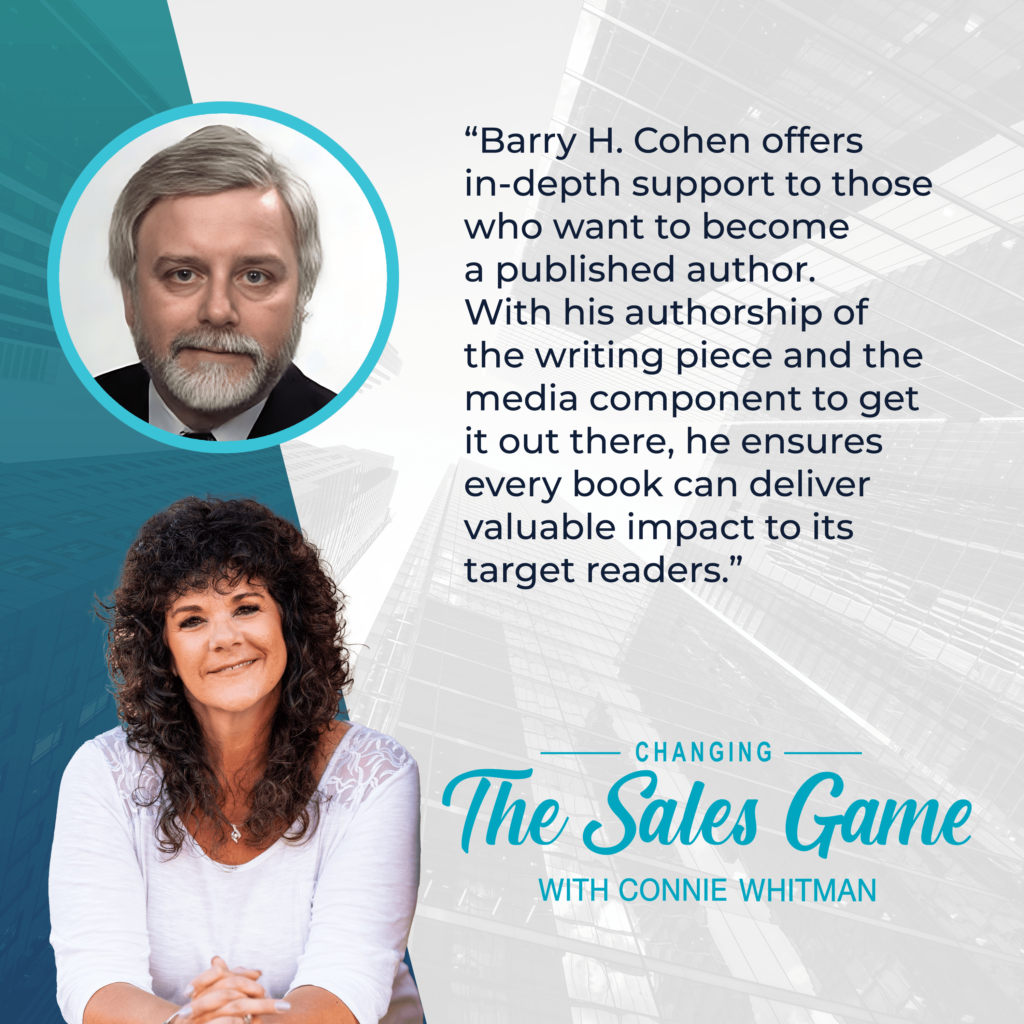
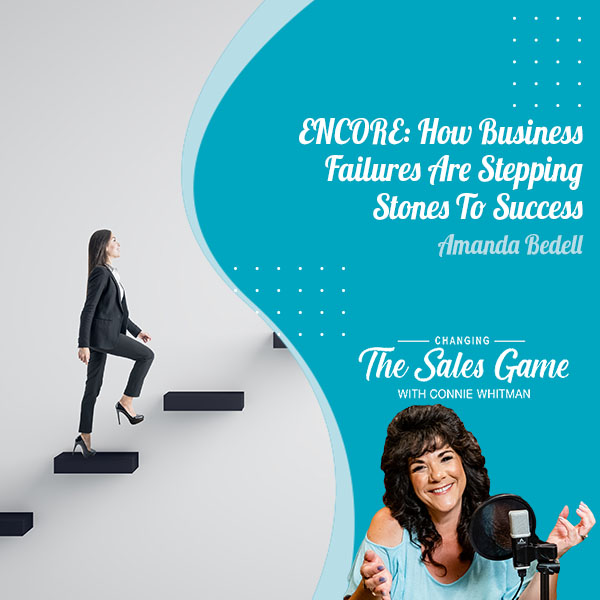
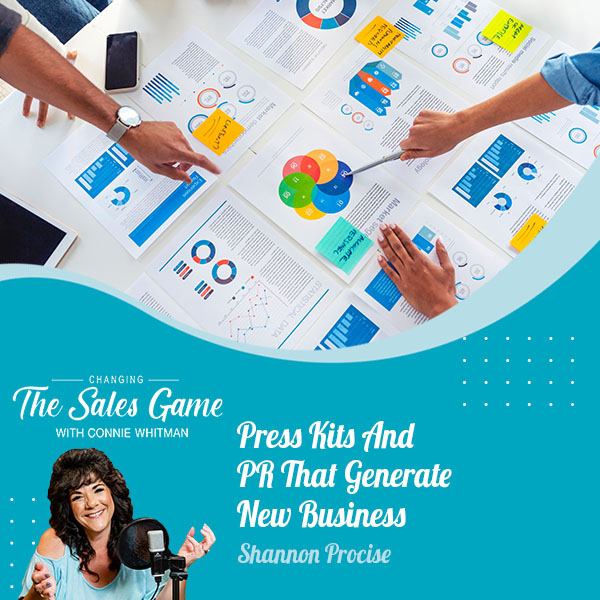
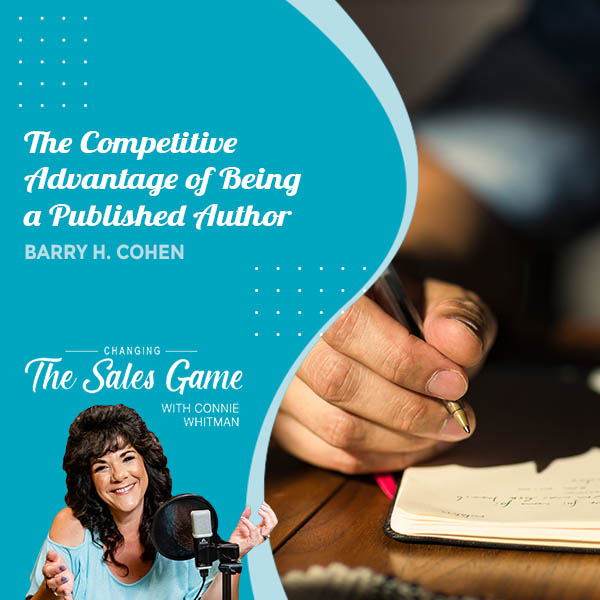
It’s perfect time to make some plans for the future and it’s time to
be happy. I’ve read this post and if I could I wish to suggest
you some interesting things or advice. Perhaps you can write next articles
referring to this article. I wish to read even more things about it!